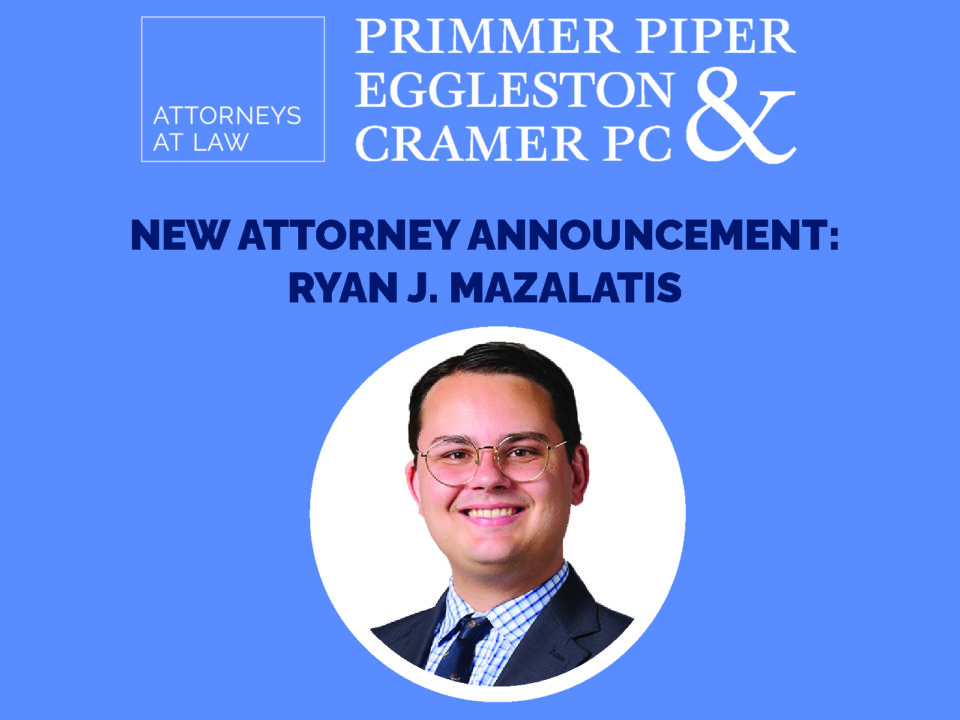
Updated Practical Law State Q&A: Vermont Trademark Laws

Real Life Encounters with Intellectual Property Law
[UPDATE: On September 11, 2020, the U.S. Department of Labor’s Wage and Hour Division issued revisions to regulations that implemented the paid sick leave and expanded family and medical leave provisions of the Families First Coronavirus Act (FFCRA). A summary of the revisions that took effect on September 16, 2020, is available here.]
On August 3, 2020, the U.S. District Court for the Southern District of New York vacated several provisions of the U.S. Department of Labor’s Final Rule on the Families First Coronavirus Response Act (“FFCRA”). While the Court’s decision does not specify whether its ruling applies nationwide or only in New York, we recommend employers that are covered by the FFCRA consider changing their practices regarding the vacated provisions or seek legal counsel when making decisions about the FFCRA.The FFCRA’s paid leave provisions are effective from April 1, 2020 to December 31, 2020.
The Court struck down four provisions of the Final Rule: (1) the “work availability” requirement—that employees are not entitled to FFCRA leave if their employers do not have work for them to do; (2) the definition of “health care provider”—that employers in a health care field have broad discretion to exclude all employees; (3) that intermittent FFCRA leave can only be taken with the employer’s consent; and (4) the requirement that employees provide documentation before taking leave. At this time, all other provisions of the Final Rule remain effective.
Impact of Vacated FFCRA Final Rule Provisions
- When an employee’s absence is for an FFCRA qualifying reason, an employer cannot deny FFCRA leave to an employee on the basis that the employer does not have work for that employee to do.
- Health care employers may not be able to exclude all employees from FFCRA leave. Based on the Court’s decision, a covered employer can only exclude the following positions from FFCRA coverage: licensed doctors of medicine or osteopathy, nurse practitioners, or other health care providers permitted to issue a certification for purposes of the FMLA under 29 C.F.R. § 825.125.
- Employers must allow intermittent leave arrangements for FFCRA leave.
- Employers cannot condition FFCRA leave on an employee providing documentation in advance.
This guidance could change pending decisions on appeal. In the meantime, employers who do not follow these changes to the Final Rule could potentially have exposure to penalties and liability for violating the FFCRA. Employers should also monitor for updates to the U.S. DOL’s FAQs on the FFCRA.
COVID-19 continues to have a significant impact on the workplace. We are here to assist if you have any questions about the Court’s decision or need to make changes to how you administer the FFCRA.
Reminder About FFCRA Small Business Exemption
The Court’s decision did not change the FFCRA’s exemption for small businesses. Please note the exemption for businesses with fewer than 50 employees is only available related to providing (a) paid sick leave due to school or place of care closures or child care provider unavailability for COVID-19 related reasons and (b) expanded family and medical leave due to school or place of care closures or child care provider unavailability for COVID-19 related reasons when doing so would jeopardize the viability of the small business as a going concern.To claim this small business exemption, an authorized officer of the business must determine and document that:
- The provision leave would result in the small business’ expenses and financial obligations exceeding available business revenues and cause the small business to cease operating at a minimal capacity;
- The absence of the employee(s) requesting leave would entail a substantial risk to the financial health or operational capabilities of the small business because of the employee(s)’ specialized skills, knowledge of the business, or responsibilities; or
- There would not be sufficient workers who are able, willing, and qualified to perform the work needed for the small business to operate at a minimal capacity.




